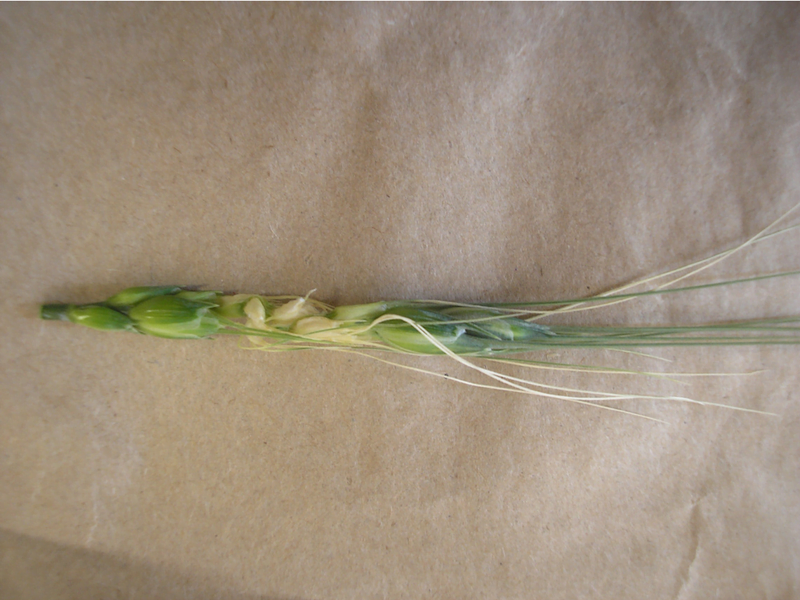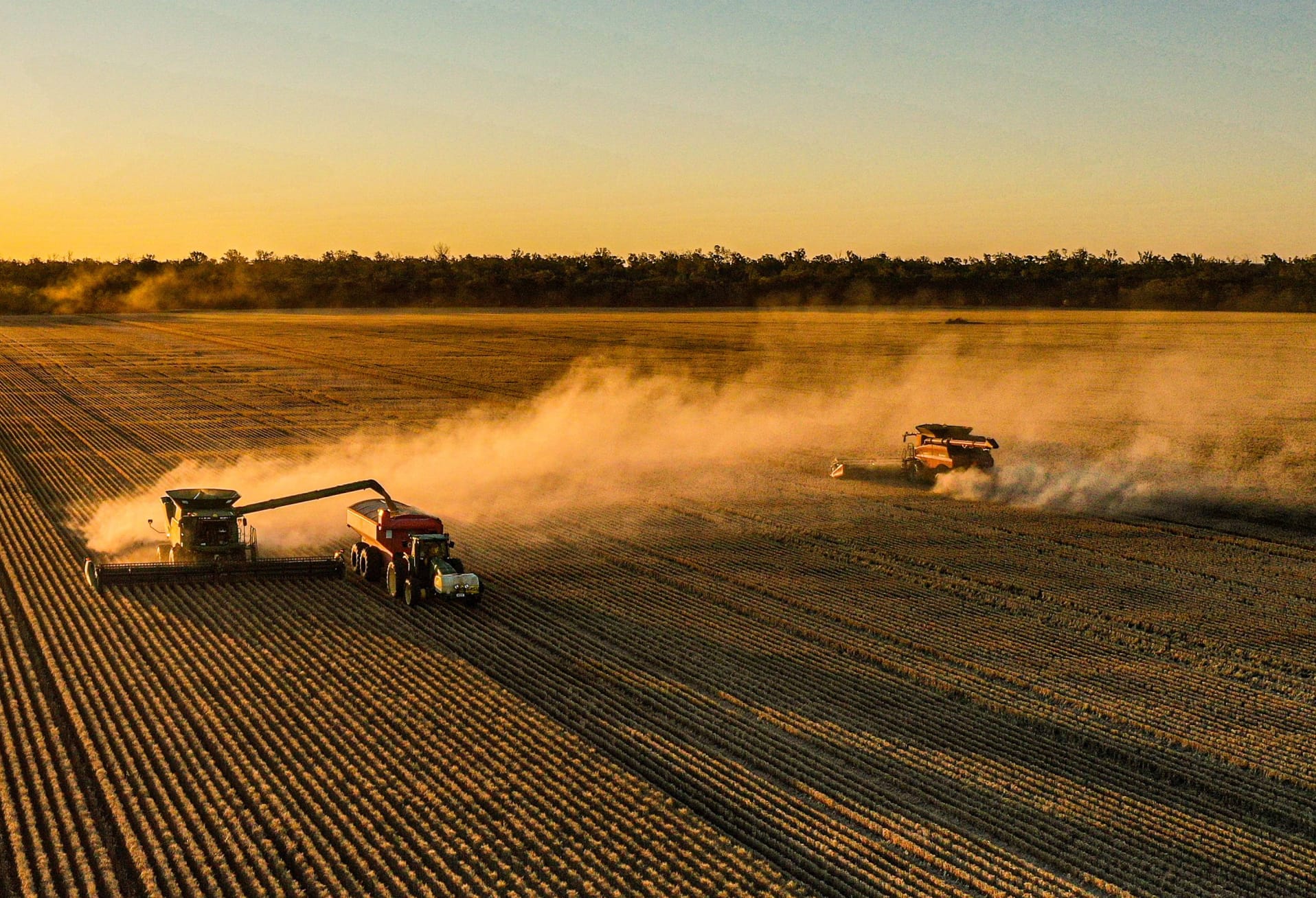From social welfare and construction to fulltime farmer, we caught up with a busy Will Simpson for a Farmer in Focus feature while he was on the sprayer.
Tell us about yourself?
I grew up on our family farm between Berriwillock and Culgoa. I completed all of my schooling at Tyrrell College in Sea Lake before going on to complete a Bachelor’s Degree in Social Welfare at Ballarat. I received a lot of support from my family to pursue a tertiary education before deciding if I would return to the family farm, for which I am very grateful. Fiona Best was my VCE Ag teacher, and a major contributor in my decision of studying a welfare degree.
I worked in the welfare industry for a year, before moving to Darwin and working in construction for 7 months. I then travelled Australia for 3 months prior to returning to the family farm permanently at the end of 2018.
In my spare time, I enjoy playing football, motorbike riding, being involved and contributing to the community, travelling when I can, and visiting friends and family.
Tell us about your farm?
Our farm is located across two main areas; one between Berriwillock and Culgoa, and the other 15km west towards Willangie. We own 2,200 hectares and have recently taken on a further 500 hectares of share farmland.
I am the fourth generation to be farming our property at Berriwillock. We grow wheat, barley, lentils, canola, vetch hay, and occasionally oats. We also run Merino ewes and cross them with Border Leicester rams to produce first cross lambs; a process that has been a part of our farming enterprise for over 40 years.
I farm alongside my father Jamie, and have in the last 12-months employed a full-time worker, Lachlan. This has played a pivotal part in our farm succession plan to allow Jamie to begin decreasing his workload.
Dad and I have a strong and respectful relationship which allows us to bounce ideas off each other daily, and work through the generational changes in a sensible and conservative manner. I regularly rely on his years of experience and extensive knowledge, whilst also incorporating my own ideas and research from BCG and GRDC. We also have a reliable Agronomist Craig Muir from Agrivision, who is meticulous and understanding in his delivery of agronomic advice for our specific farming enterprise.
Throughout the busier periods such as harvest, cropping, and shearing, my Mother Jenny assists with farm work. My partner Jess also enjoys regularly helping out around the farm and contributing to cropping, lambing, shearing and driving the chaser bin during harvest.
What has been happening on farm recently?
Since harvest has finished, the main priority (like most farmers in the region) has been summer spraying. On top of spraying, we have been catching up on general farm maintenance and upkeep with fencing, fence line spraying, sheep work, and infrastructure upgrades.
How did your 2023 harvest go? Any preparations for the season going forward?
We are extremely happy with how our harvest went. As many can relate, it was a patchy start to the season, but a combination of a solid summer spray program leading in, lessons learned from 2022 and an ideal finish in the spring produced quite impressive crops.
Moving forward into 2024, our main focus is to be disciplined in our summer spray program to capitalise on the rain we have had over the last three months. Other preparations for the upcoming season include soil testing, and planning and consideration into the fact that we have had multiple good years in a row which have depleted the soil of nutrients.
What were your biggest challenge/s in 2023? How are you hoping to overcome these this season?
I believe one of our biggest challenges for 2023 was having to take a less conservative approach with inputs to reach our potential yields, such as fertilisers at cropping, top dressing urea, fungicide sprays, and more spraying than there would have been historically. Another challenge was looking past the doubtful long-term forecast early in the year and trusting that we had enough sub-soil moisture to get at least an average crop in a drier year. Additionally, we dropped two paddocks of barley from a risk management point of view, expecting the year to be drier than average.
What are your plans for your farm in 2024 and onwards? Do you plan to do anything differently, or are there any new ideas you are hoping to implement?
My long-term plan for the farm is to become more and more efficient every year, by developing my knowledge and experience, upgrading machinery and equipment and adopting modern technologies. I am looking forward to becoming more precise with our cropping and optimising our potential each year. I believe this is achievable through personal development, as well as implementing the modern technologies that are available to us, such as using yield mapping data for variable rate, new spray technologies and approaches, as well as being more paddock and area specific with inputs (rather than a blanket approach).
Through BCG’s role as the North West Node of the Vic Hub, we are always looking at ways to prepare for drought. Drought is an inevitable aspect of the climate we farm in. How is your business preparing for future droughts or potential financial shocks within the business?
We are extremely lucky to have had multiple good years in a row, and I believe taking advantage of that position is crucial in drought proofing our business. Upgrading machinery, equipment, and farm infrastructure to improve efficiency whilst still thriving for quality is an approach that I believe will pay dividends in future, even in the drier years.
Spreading our risk by running livestock is another approach we will continue. Providing flexibility to income by installing feedlot pens is one example of what we have done over the previous few years.
Off-farm planning and investing is another option that we look at and discuss as a way to spread our financial risk. I believe flexibility in thinking and approaches to farming is one of the key aspects to being successful in the agriculture sector.


The Victoria Drought Resilience Adoption and Innovation Hub is a state-wide collaboration of 10 organisations.
Led by the University of Melbourne and with headquarters at UM’s Dookie Campus, the Vic Hub is a Partnership between five farming organisations (Birchip Cropping Group, Food & Fibre Gippsland, Mallee Regional Innovation Centre, Riverine Plains and Southern Farming Systems), four universities (UM, Deakin, Federation and La Trobe), and the State Government (through Agriculture Victoria).
One of eight hubs established nationally under the Australian Government’s Future Drought Fund (FDF), the Vic Hub works to enhance the drought preparedness and resilience of Victoria’s agricultural industries, the environment and regional communities, encompassing broader agricultural innovation. Engaging with a range of industry and community stakeholders, the Vic Hub links research with community needs for sustainable outcomes.











